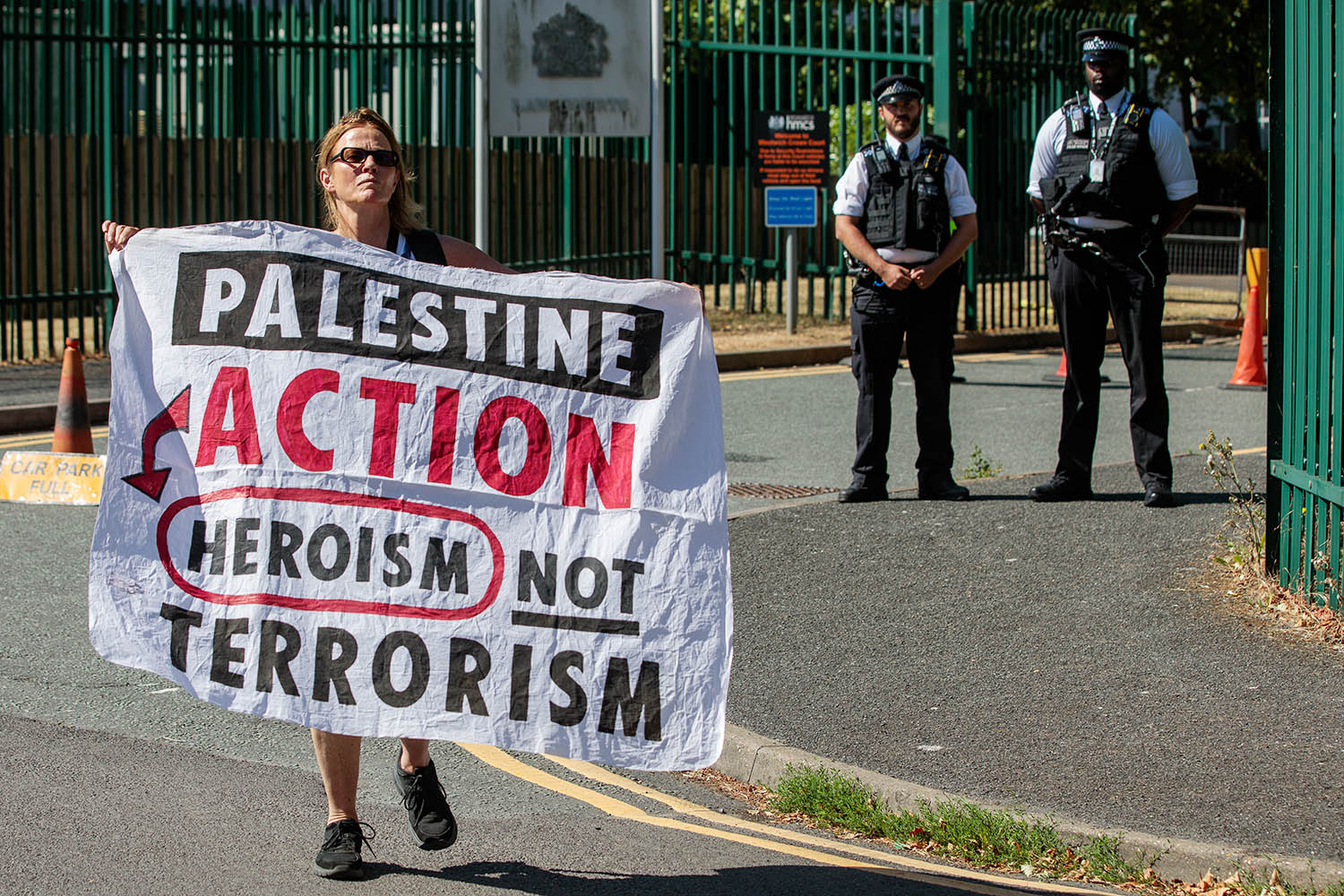“I am not soft on terrorism,” the Labour peer, Lord Hain, said last week, “but I am a strong believer that you have to know what it looks like.” Do we know?
The issue on Peter Hain’s mind was the government’s proscription of Palestine Action as a terrorist organisation. And the problem, for an old anti-apartheid activist like him, was that the things Palestine Action has done to attract the terrorist label look a lot like things he dabbled in himself 40 or 50 years ago: politically-motivated direct action, trespass, criminal damage. Treating Palestine Action as if it were al-Qaeda, he said, is “intellectually bankrupt, politically unprincipled and morally wrong.”
Some of the great institutions of this country are in a self-serving muddle on the question of what counts as terrorism. The BBC has a long-standing policy of defining nothing as terrorism and the government now stands accused of defining too much. In different ways, the imprecision suits them both.
The BBC argues its case in two ways. First, it says, the term terrorist does not help anyone to understand a news story. Far better just to describe things neutrally: a gunner, a bomber, a member of such-and-such an organisation. And second, there is no agreement on who fits the bill. One person’s terrorist is another’s freedom fighter.
It is a policy which gives away one of the great privileges of a newsroom; to choose the words it uses for their accuracy. The BBC allows others to describe an event as terrorism and reports what they say without query. And it allows people who may be terrorist sympathisers – Hamas supporters, for the sake of argument – to strike out the word “terrorist” from the BBC’s own lexicon because they see a freedom fighter instead. With that as the bar, what should be a factual judgment becomes a moral one.
If the BBC looks weak-kneed it is because there are workable definitions of terrorism out there and it could choose one if it wanted. The best-known was devised by the academic and former vice-chancellor of Oxford University, Louise Richardson in 2006: “Deliberately and violently targeting civilians for political purposes.”
That definition is worth keeping in mind because it contrasts with the keystone of UK anti-terror legislation, the Terrorism Act 2000 which says terrorism is ”... designed to influence the government or to intimidate the public… for the purpose of advancing a political, religious or ideological cause… Action falls within this section if it involves serious violence against a person or serious damage to property.”
There is plenty of elbow room in that description for a politician or a police officer to exploit, and a real difference with Louise Richardson’s eight, tight words. Under the Act, an act of terrorism no longer has to target civilians, serious damage to property is enough to get it over the threshold as long as it is aimed at influencing the government.
If that’s the case – if that is what parliament voted for 25 years ago – why do some MPs who so recently bought the home secretary’s argument for proscribing Palestine Action now seem to be suffering buyer’s remorse? Two reasons: the sight of retired magistrates, teachers and doctors being arrested in droves at that protest in Westminster last weekend (532 people in total, nearly 100 in their 70s and 15 in their 80s); and a feeling that although the Terrorism Act has always allowed something like the proscription of Palestine Action to happen, it has not happened quite like this before. There is a sense that a reasonable person’s understanding of what amounts to terrorism is parting company from the law.
That is why it matters that there is some roughly shared idea of what terrorism is and is not. The lack of one clouds the waters, and in those waters swim every populist and social media troll who wants to use terrorism as a slur to put a political or ideological opponent beyond the pale. Just look how often the world’s leaders do exactly that.
Newsletters
Choose the newsletters you want to receive
View more
For information about how The Observer protects your data, read our Privacy Policy
Of course, 532 people can be naive and wrong about a flawed organisation like Palestine Action, and the government has it within its power to prove them so if it can summon up the evidence. The test will come in the judicial review Palestine Action has brought in the High Court.
On the basis of what we know now about the track record of Palestine Action rather than what the security services may have whispered into Yvette Cooper’s ear, I’d say this. Unless and until we know more, I would happily write these words on a placard: “I support Palestine Action’s right to appeal”.
It is an odd thought, that if the last three words of that slogan were accidentally cut it would be enough, in theory at least, to get me arrested.
Photograph by Mark Kerrison/In Pictures via Getty Images



